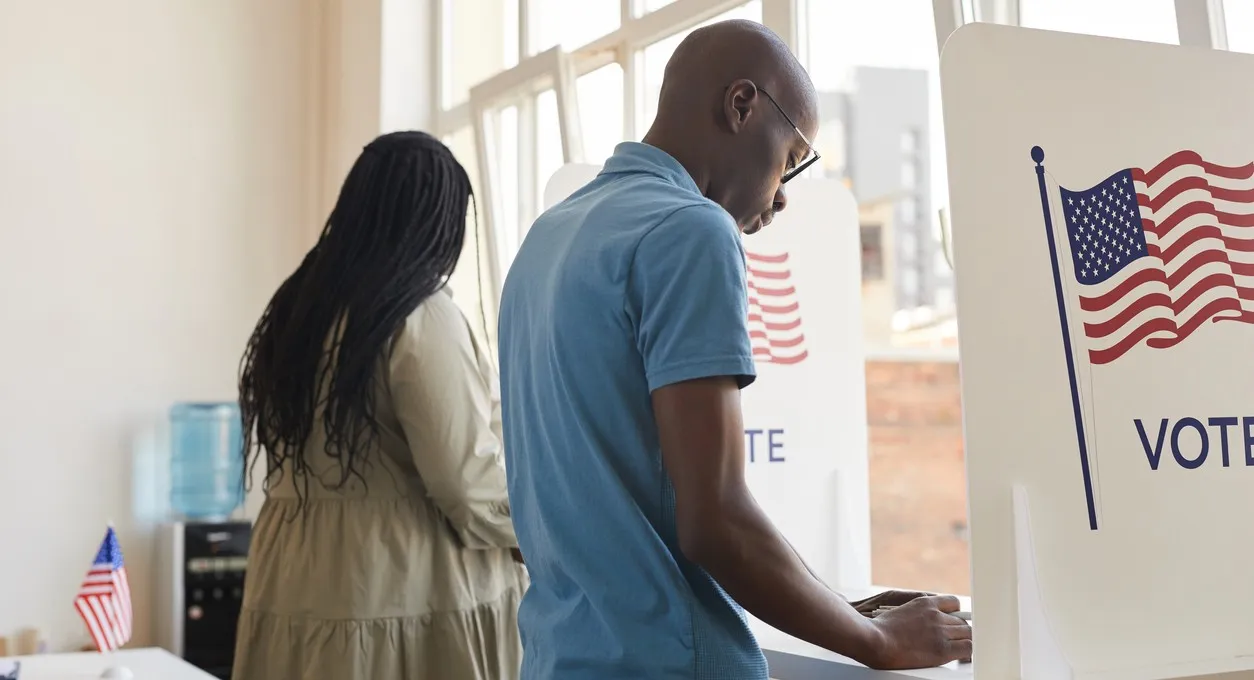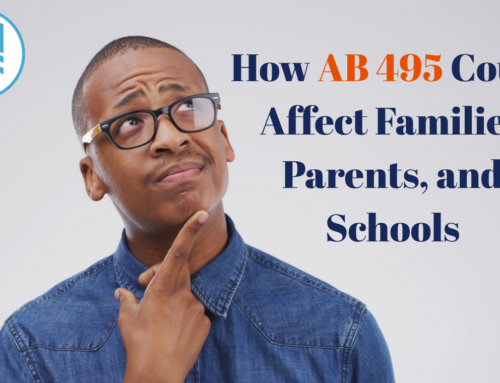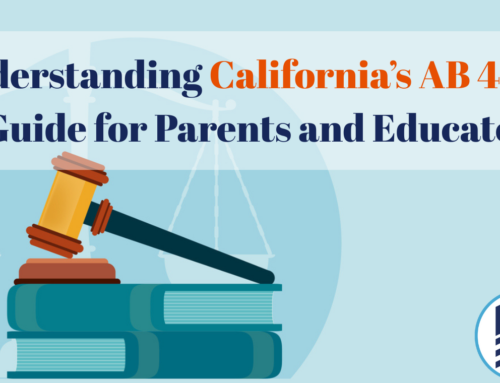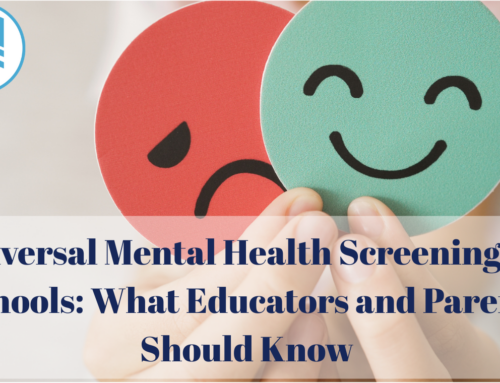
Bill Vaughn is credited with saying, “A citizen of America will cross the ocean to fight for democracy, but won’t cross the street to vote in a national election.”
Unfortunately, Mr. Vaughn’s assessment isn’t too far off. Low voter turnout has been a concern for decades. Presidential elections tend to bring out the highest numbers of voters…but state and local elections routinely bring out far fewer.
Refinery29 explains these concerns: “Voter turnout in the United States, in general, is low—and because of that, local elections tend to suffer most. In the 2016 presidential election, about 56% of the voting-age population cast a ballot … Nationwide, only 27% of eligible voters participated in local elections …”
Now, you may be asking, “So? Why does this matter? The presidential and other national elections are the big ones anyway, right?”
Actually, state and local elections are even more important to the average citizen than you might think—especially for parents who are concerned about their kids’ educational futures. Here’s why:
Why State and Local Elections Matter
State and local elections hit closer to home. While national politics most often have long-term trickle-down effects, state and local elections have immediate real-world consequences for those in the voting booth.
“The stakes of local elections might not be as widely reflected in the media as they are about the Presidential Election, but local elections have real consequences,” reflects Harvard Political Review. “Whether it is the guarantee of having healthy drinking water or the benefits of maintained streets and bridges, infrastructure is a concern that should remain on the forefront of voters’ minds as they consider the candidates of a city-level election.”
State and local elections hit right here at home, so it’s all the more important to participate in the voting process. Also, local and state elections are on a much smaller scale than national elections. Your vote is very important in general but may actually pull a bigger punch the more local you go.
What Are State Elections?
State elections refer to elections concerning candidates and issues at a state level. These affect the state capitol and the offices located there. State elections may include:
- Governor: Signs into effect or vetoes laws, influences legislative decisions
- Attorney General: Enforces the law, represents the state in court, coordinates efforts between federal, state, and local law enforcement agencies
- Treasurer: Oversees the state’s finances through the state’s savings, debt and investments, sits on various boards and committees
- Legislators: Propose, amend, and pass legislation on the state level
Please note that these are brief summaries of these positions, and not comprehensive. Each position has many more responsibilities than stated above.
What Are Local Elections?
Local elections are school district, city, and county elections. Local elections include any elections that are not national or statewide. Some examples of local positions and why they matter are:
- Judges: Have the power to rule on local cases, determine legal outcomes, and sentence criminals
- The District Attorney and Attorney General: Determine whether or not to prosecute a case based on the offense and the evidence
- School board: Set local educational policy, lobby for funding, determine school district budget
- City council members: Give the final approval for local laws, approve or reject key positions, and make decisions about where local money goes, ultimately helping or hurting individuals and the local community as a whole
Please note that these are brief summaries of these positions, and not comprehensive. Each position has many more responsibilities than are stated above.
How Local Elections Affect Education
There are several ways that a local election may directly affect your child’s education. One obvious way would be the election of the local school board. We took a brief look at the impact of the local school board above, but let’s take a little bit of a closer look now.
The Campus Election Engagement Project explains, “The school board is the link between the classroom and the community. They decide how and what students are learning by setting policies, curriculums, and budgets for the school district. Voting for school board members affects funding for programs like arts, music, and sports, the school calendar, and what time school begins and ends. They hire or fire school principals and set guidelines for teachers. Your vote for the school board directly affects the education of students in K-12 schools.”
Honestly, that sounds like a pretty big deal. A lot rides on the election of responsible school board members who hold the same values as you do. They can directly impact your student’s education and ultimately can help determine the future of your local area through the educational values of its youth.
There are many other local positions that can affect your child’s education. Depending on where you live, officials such as the mayor or city council members may have a direct impact on education.
How State Elections Affect Education
One of the positions at the state level is that of governor. He or she often has responsibilities directly or indirectly impacting education.
“Though governors’ roles and powers change from state to state, they often set the political tone and determine which issues will be priorities,” explains EdNote. “Governors are also influential in their ability to appoint key education leadership roles in states …”
The State Board of Education has a direct impact on schools, education policy, and education as a whole. In each state, the State Board of Education looks a little bit different. In some states, the members may be appointed instead of elected. (But guess what? You elect the person/people who appoint state board members into office!)
Regardless of how your state’s school board may look, in most states, this board has the authority to:
- Establish standards for accreditation of local school districts
- Establish the requirements for high school graduation
- Determine the qualifications for public educators
- Establish standards for accreditation of preparation programs for teachers and administrators
- Establish state accountability and assessment programs
The State Legislature can also have an impact on education. ThoughtCo. weighs in on this, shedding light on a current problem in many states: “In recent years schools, administrators, and educators have been bombarded with well-intended legislation. Policymakers must be attentively aware of the volume of education measures allowed to move forward each year. Schools have been overwhelmed with the sheer number of legislative mandates.”
ThoughtCo. goes on to point out that when schools are so overwhelmed with new “great ideas,” then it’s hard to actually accomplish anything properly. Citizens should remain attentive to the educational climate. It’s their job to direct their policy and lawmakers in the direction they want to see their state education go. It’s vital that we the people stand as a safeguard between our children and those who may create an undesirable situation—even when well-intentioned.
The Issues
Every parent will have their own priorities when it comes to their child’s education and the voting booth. Where you live, the age of your child, and countless other factors will affect which issues you choose to investigate and vote on. Below are some of the more common education issues parents look into before casting their vote for a candidate or policy:
- Common Core
- Charter Schools and voucher programs
- School safety
- Bullying
- Teacher salaries
- Standardized testing
- Government funding
- School board candidates’ campaign platforms
Be sure to prioritize your preferences and concerns. Then, research the candidates and their stances on those issues before heading to the voting booth!
Know Your Election
Sometimes, it can be difficult to know if your area has an election coming up, or which positions may require your vote. The Internet has you covered! Sites like USA.gov and US Vote Foundation can fill you in. In both cases, simply select your state. At US Vote Foundation, you can even go a step further and select specific election levels to narrow it down further.
Know Your Candidate
So, you know what issues matter to you. How do you research the platform of the candidates?
Great question! We have an answer.
Vote USA offers a comprehensive look at municipal candidates and their views on varying topics. Simply enter your address and explore the results! An informed vote is the best vote.
Know Your Ballot
When you walk into the voting booth, it’s easiest if you already know what is on the ballot and have your vote prepared. BallotPedia is a great site for showing you a sample ballot for elections in your area ahead of time! Plug in your address and browse away. If your local ballot doesn’t show up, you can contact your local elections office. Find your local office here.
Be Involved
It’s vitally important that we all vote when we have the opportunity and that we are well-informed when we cast our votes.
But, voting is not the only way that we can make a difference. There are literally hundreds of ways to get involved and work toward protecting our children’s educational integrity at the government level. Just a few suggestions on how to do this are:
- Work or volunteer at the polls.
- Write letters to the local newspaper. Letters to the editor are a great way to express your voice and talk about the issues.
- Campaign for a favorite candidate. There are always volunteer opportunities—just contact the campaign!
- Register to vote.
- Research the issues and candidates and start a discussion with others. Educate your family, friends, and those you meet.
- Run for office! This is a committed and effective way to be involved. Be the change you want to see. (Interested in running for your local school board? Check out our FREE online training course!)
- Attend local meetings like school board meetings.
Did you know that this coming Tuesday (November 8, 2022) is National Election Day? Use the resources above to check your local and state ballots and make your voice heard.
Get out and vote!




